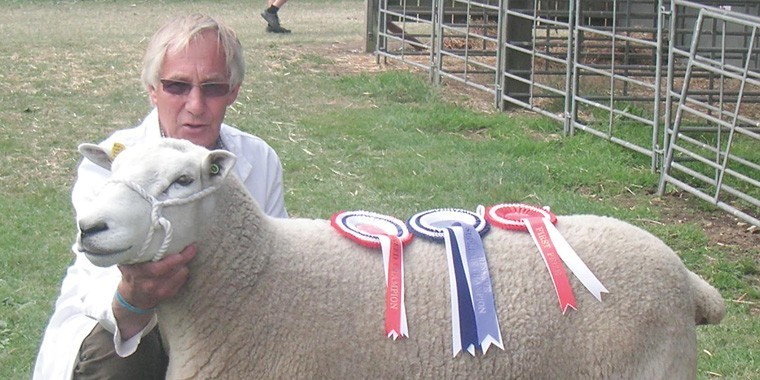In spite of a slow and not so good start, this year did manage to better my own record for time spent lambing.
Apart from a few February lambs out of some ewes that I bought in lamb, my pedigrees started lambing early in the morning on 10 March and the last ewe lambed at 6.45pm on 26 March, 17 days from start to finish, with no empties. I have for six or seven years now only left tups in with the ewes for 21 days (as I still work three days a week at Hadlow College it suits me to have a tight lambing). With keeping my own replacements I have, by default, been selecting the more precocious and fecund ewes, it certainly seems to have had the desired effect.
I did at one time consider sponging ewes, but it is not a procedure that I am altogether comfortable with. Any ewes that did not hold to the induced cycle would be another 17 days before they would take the tup again so I would struggle to get the results that I have had this year with natural service, quite apart from the additional cost and time associated with sponging.
I did have a few empties in a small group of ewes that I put to a Down ram (Suffolk this year) to produce a few quality crossbred lambs for the freezer and restaurant trade. But I suspect that those empties (four ewes) have more to do with a dog worrying incident in November five or six weeks after the tups came out. Even though I only had to stitch up one ewe, the remainder of the group were fairly stressed for a day or two.
Sadly dog worrying is on the increase and is a problem that costs the sheep industry more than £4 million each year. It is the dogs – if they are caught – that pay the penalty, but it is in reality the owners that are the problem. I simply cannot understand the mentality of dog owners who allow their dogs to be in a position where they may worry livestock.
On a number of occasions I had the owners of dogs I have caught in with my sheep tell me: “Oh he was only playing… or “She wouldn’t hurt them…”. My response to this sort of comment would generally not be printable. But it does bother me that many dog owners seem to be totally incapable of considering their pets as dogs, with the dogs’ instinct to hunt, instincts inherited from their wolf ancestors and barely concealed below their cuddly surface. I applaud the efforts being made by the National Sheep Association (NSA) and other organisations to raise awareness of dog worrying, but I do wonder if it is reaching the right people. There is a very good short video clip (https://youtu.be/HjiFqwf9TmM), highlighting the issues of sheep worrying by dogs, produced by the Scottish NSA and RSPCA, and targeted at dog owners, but I wonder how many non farming dog owners have seen it.
I did copy the link to my colleagues in the animal management department at Hadlow, who will be training some of our future dog owners and sons and daughters of current dog owners. But I am not sure how much use they will make of it. It is the younger generation that we need to reach with some quite hard hitting material (if we are allowed to – we mustn’t upset them too much), so that some of them may question the actions of some of their less responsible dog owning parents.
To come back to lambing, as far as I can recall I only had one wet day during lambing (but parts of lambing can become a bit of a blur). For lambing outdoors, that was really useful and I am sure that sheep producers in the South East have welcomed the warm dry weather during lambing.
But enough is enough: we desperately need a good drop of rain. With significantly less than 50% of our average rainfall in the region since 1 March, we are facing the real prospect of grass stopping growing due to lack of moisture (grass really is not very drought tolerant and will stop growing at a soil moisture deficit of about one inch) before it has really got going.
I have some good grass in front of my ewes at present but am really becoming concerned about what will be there for them in a couple of weeks time. And to think that last year we were worried about grass supplies at this time because it was so cold and wet. This situation proves the old saying that “Britain has lots of weather but no climate.” There is no such thing as a normal season when it comes to the weather.
And finally, for those who thought that leaving the European Union would give us easy access to European markets without all of the red tape and regulations, two headlines in today’s “Times” (21 April): “Britain told to keep EU laws” if we want to maintain access to European markets; and “Exports of sheep and cows to foreign abattoirs may be banned after Brexit” as part of a package of new improved welfare rules currently being considered by UK ministers. I have no issue with livestock welfare, but it would be nice to have a level playing field when it comes to international trade in livestock and livestock products.




